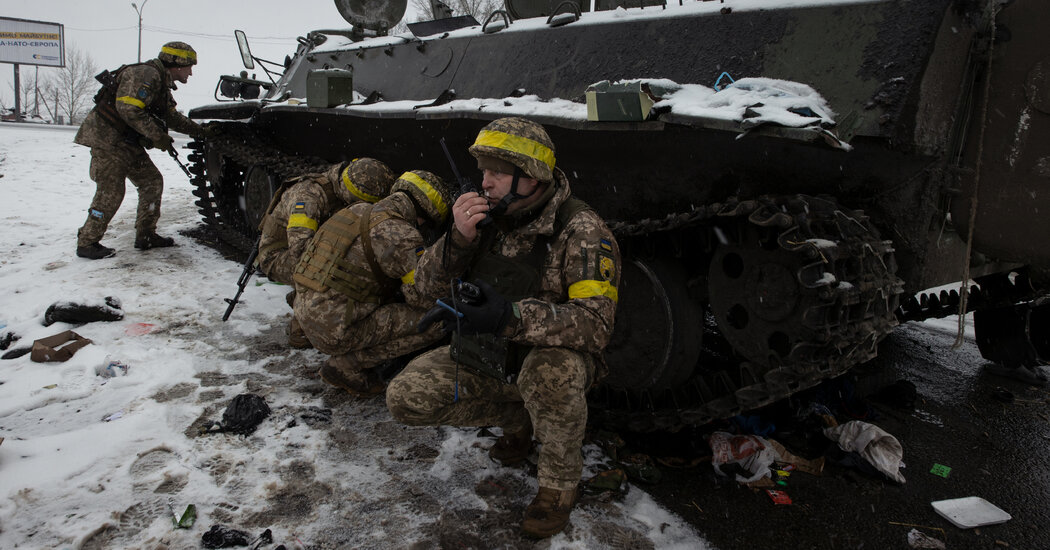
Ukraine has succeeded in slowing the Russian advance, but has not been able to stop it, nor is the resistance strong enough to shift Russian President Vladimir V. Putin’s war aims. Over the long term, U.S. officials said, it will be difficult for Ukraine to continue to frustrate the Russian advance.
In the meantime, though, Ukrainians are turning into a nation at arms. “In combat, it’s always different than what you thought it’d be, and the side that learns faster and adapts faster will win out,” said Frederick B. Hodges, the former top U.S. Army commander in Europe who is now with the Center for European Policy Analysis. “So far, Ukraine is learning and adapting faster.”
Ukraine has one of Europe’s largest militaries, with 170,000 active-duty troops, 100,000 reservists and territorial defense forces that include at least 100,000 veterans. Thousands of civilians are also now enlisting.
The Ukrainian army has been training for further Russian encroachment ever since Russia seized Ukraine’s Crimean Peninsula in 2014 and began supporting separatists in the Donbas region, in eastern Ukraine. Many of Ukraine’s veterans fought in those battles, so there is a subset of the population that is trained and knows how to fight Russians.
U.S. Special Operations Forces have also trained Ukrainian military forces. Leaders in Kyiv then assigned those soldiers to conventional units, allowing them in turn to train a larger portion of the army. American analysts say that training has made a difference on the battlefield.
The United States has provided more than $3 billion in weapons, equipment and other supplies to Ukraine’s armed forces since 2014. In those eight years, U.S. military advisers, including Army Green Berets and National Guard troops, have trained more than 27,000 Ukrainian soldiers at the Yavoriv Combat Training Center near Lviv in western Ukraine.
In Brussels on Thursday, NATO Secretary General Jens Stoltenberg said the Ukrainian military was “performing better and putting up more resistance than most experts expected, and surely more than Russia expected.”




